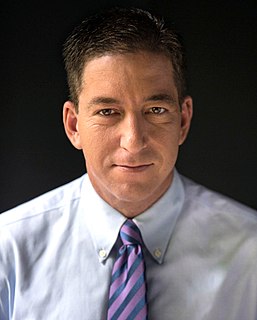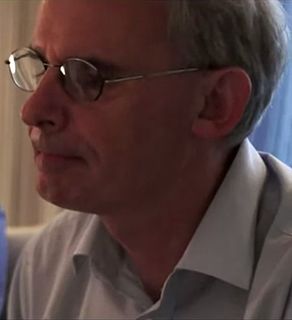
Glenn Edward Greenwald is an American journalist, author and lawyer. In 2014, he cofounded The Intercept, of which he was an editor until he resigned in October 2020. Greenwald subsequently started publishing on Substack.
The Geschwister-Scholl-Preis is a literary prize which is awarded annually by the Bavarian chapter of the Börsenverein des Deutschen Buchhandels and the city of Munich. Every year, a book is honoured, which "shows intellectual independence and supports civil freedom, moral, intellectual and aesthetic courage and that gives an important impulse to the present awareness of responsibility".

Laura Poitras is an American director and producer of documentary films.

Boundless Informant is a big data analysis and data visualization tool used by the United States National Security Agency (NSA). It gives NSA managers summaries of the NSA's worldwide data collection activities by counting metadata. The existence of this tool was disclosed by documents leaked by Edward Snowden, who worked at the NSA for the defense contractor Booz Allen Hamilton. Those disclosed documents were in a direct contradiction to the NSA's assurance to United States Congress that it does not collect any type of data on millions of Americans.

Edward Joseph Snowden is an American and naturalized Russian former computer intelligence consultant who leaked highly classified information from the National Security Agency (NSA) in 2013, when he was an employee and subcontractor. His illegal disclosures revealed numerous global surveillance programs, many run by the NSA and the Five Eyes Intelligence Alliance with the cooperation of telecommunication companies and European governments, and prompted a cultural discussion about national security and individual privacy.
Special Source Operations (SSO) is a division in the US National Security Agency (NSA) which is responsible for all programs aimed at collecting data from major fiber-optic cables and switches, both inside the US and abroad, and also through corporate partnerships. Its existence was revealed through documents provided by Edward Snowden to media outlets in 2013 and, according to him, it is the "crown jewel" of the NSA.

Ongoing news reports in the international media have revealed operational details about the Anglophone cryptographic agencies' global surveillance of both foreign and domestic nationals. The reports mostly emanate from a cache of top secret documents leaked by ex-NSA contractor Edward Snowden, which he obtained whilst working for Booz Allen Hamilton, one of the largest contractors for defense and intelligence in the United States. In addition to a trove of U.S. federal documents, Snowden's cache reportedly contains thousands of Australian, British, Canadian and New Zealand intelligence files that he had accessed via the exclusive "Five Eyes" network. In June 2013, the first of Snowden's documents were published simultaneously by The Washington Post and The Guardian, attracting considerable public attention. The disclosure continued throughout 2013, and a small portion of the estimated full cache of documents was later published by other media outlets worldwide, most notably The New York Times, the Canadian Broadcasting Corporation, the Australian Broadcasting Corporation, Der Spiegel (Germany), O Globo (Brazil), Le Monde (France), L'espresso (Italy), NRC Handelsblad, Dagbladet (Norway), El País (Spain), and Sveriges Television (Sweden).

The global surveillance disclosure released to media by Edward Snowden has caused tension in the bilateral relations of the United States with several of its allies and economic partners as well as in its relationship with the European Union. In August 2013, U.S. President Barack Obama announced the creation of "a review group on intelligence and communications technologies" that would brief and later report to him. In December, the task force issued 46 recommendations that, if adopted, would subject the National Security Agency (NSA) to additional scrutiny by the courts, Congress, and the president, and would strip the NSA of the authority to infiltrate American computer systems using "backdoors" in hardware or software. Geoffrey R. Stone, a White House panel member, said there was no evidence that the bulk collection of phone data had stopped any terror attacks.

Global mass surveillance can be defined as the mass surveillance of entire populations across national borders.

American Civil Liberties Union v. James Clapper, No. 13-3994, 959 F.Supp.2d 724, was a lawsuit by the American Civil Liberties Union (ACLU) and its affiliate, the New York Civil Liberties Union, against the United States federal government that challenged the legality of the National Security Agency's (NSA) bulk phone metadata collection program. On December 27, 2013, the United States District Court for the Southern District of New York dismissed the case, finding that the collection of metadata did not violate the Fourth Amendment. On January 2, 2014, the ACLU appealed the ruling to the United States Court of Appeals for the Second Circuit. On May 7, 2015, the appeals court ruled that Section 215 of the Patriot Act did not authorize the bulk collection of metadata, which judge Gerard E. Lynch called a "staggering" amount of information.

Global surveillance and journalism is a subject covering journalism or reporting of governmental espionage, which gained worldwide attention after the Global surveillance disclosures of 2013 that resulted from Edward Snowden's leaks. Since 2013, many leaks have emerged from different government departments in the US, which confirm that the National Security Agency (NSA) spied on US citizens and foreign enemies alike. Journalists were attacked for publishing the leaks and were regarded in the same light as the whistleblowers who gave them the information. Subsequently, the US government made arrests, raising concerns about the freedom of the press.
Commentary on Edward Snowden's disclosure is part of the reactions to global surveillance disclosures made by Edward Snowden.

This timeline of global surveillance disclosures from 2013 to the present day is a chronological list of the global surveillance disclosures that began in 2013. The disclosures have been largely instigated by revelations from the former American National Security Agency contractor Edward Snowden.

MYSTIC is a former secret program used since 2009 by the US National Security Agency (NSA) to collect the metadata as well as the content of phone calls from several countries. The program was first revealed in March 2014, based upon documents leaked by Edward Snowden.

Ewen MacAskill is a Scottish journalist. He worked for 22 years on The Guardian, ending his career in September 2018 as the newspaper's defence and intelligence correspondent. MacAskill was involved in preparing the publication disclosures from Edward Snowden of the activities of the American National Security Agency (NSA).

Citizenfour is a 2014 documentary film directed by Laura Poitras, concerning Edward Snowden and the NSA spying scandal. The film had its US premiere on October 10, 2014, at the New York Film Festival and its UK premiere on October 17, 2014, at the BFI London Film Festival. The film features Snowden and Glenn Greenwald, and was co-produced by Poitras, Mathilde Bonnefoy, and Dirk Wilutzky, with Steven Soderbergh and others serving as executive producers. Citizenfour received critical acclaim upon release, and was the recipient of numerous accolades, including Best Documentary Feature at the 87th Academy Awards. This film is the third part to a 9/11 trilogy following My Country, My Country (2006) and The Oath (2010).
Lindsay Mills is an American acrobat and blogger. She came to international attention as the partner of former NSA analyst Edward Snowden in 2013 at the time of the global surveillance disclosures. Mills left the United States to join Snowden in exile in Moscow around October 2014. They married in 2017.

RAMPART-A is the code name for global mass surveillance and world-wide signals intelligence partnership program led by the United States National Security Agency (NSA). Aim of the program is to "gain access to high-capacity international fiber-optic cables that transit at major congestion points around the world".

Permanent Record is a 2019 autobiography by Edward Snowden, whose revelations sparked a global debate about surveillance. It was published on September 17, 2019, by Metropolitan Books, an imprint of Henry Holt and Company. The book describes Snowden's childhood as well as his tenure at the Central Intelligence Agency and National Security Agency and his motivations for the leaking of highly classified information in 2013 that revealed global surveillance programs. Snowden also discusses his views on authoritarianism, democracy and privacy. The writer Joshua Cohen is credited by Snowden for "helping to transform my rambling reminiscences and capsule manifestoes into a book."












